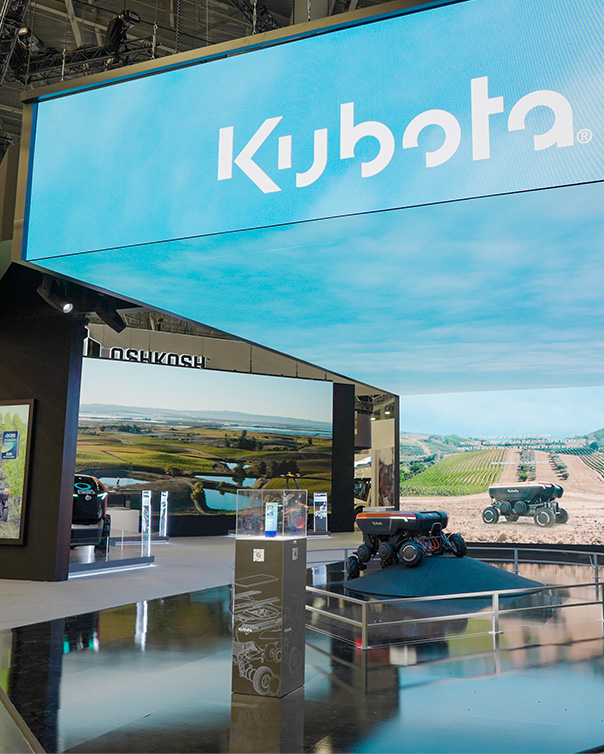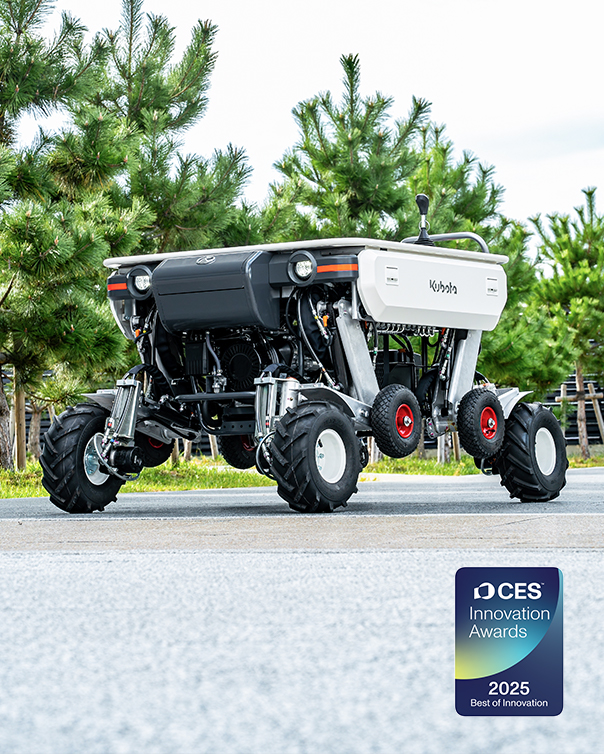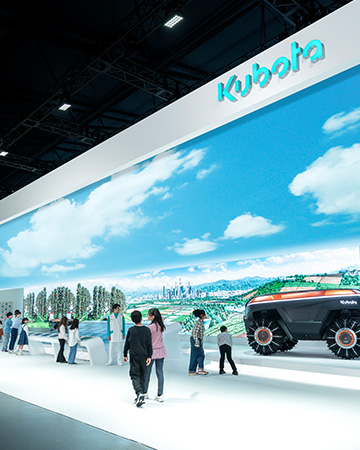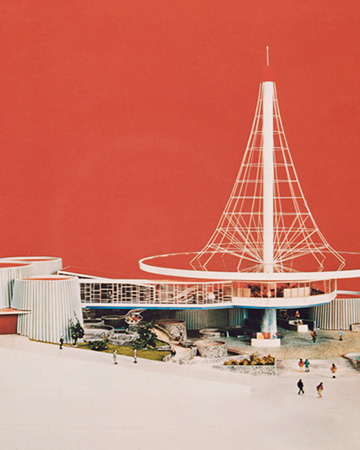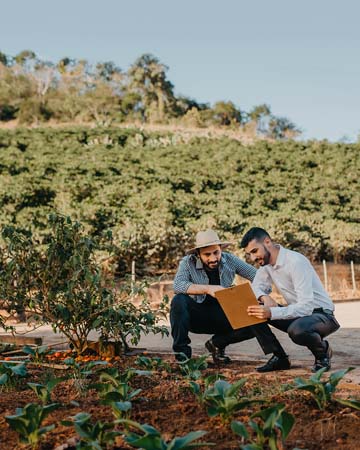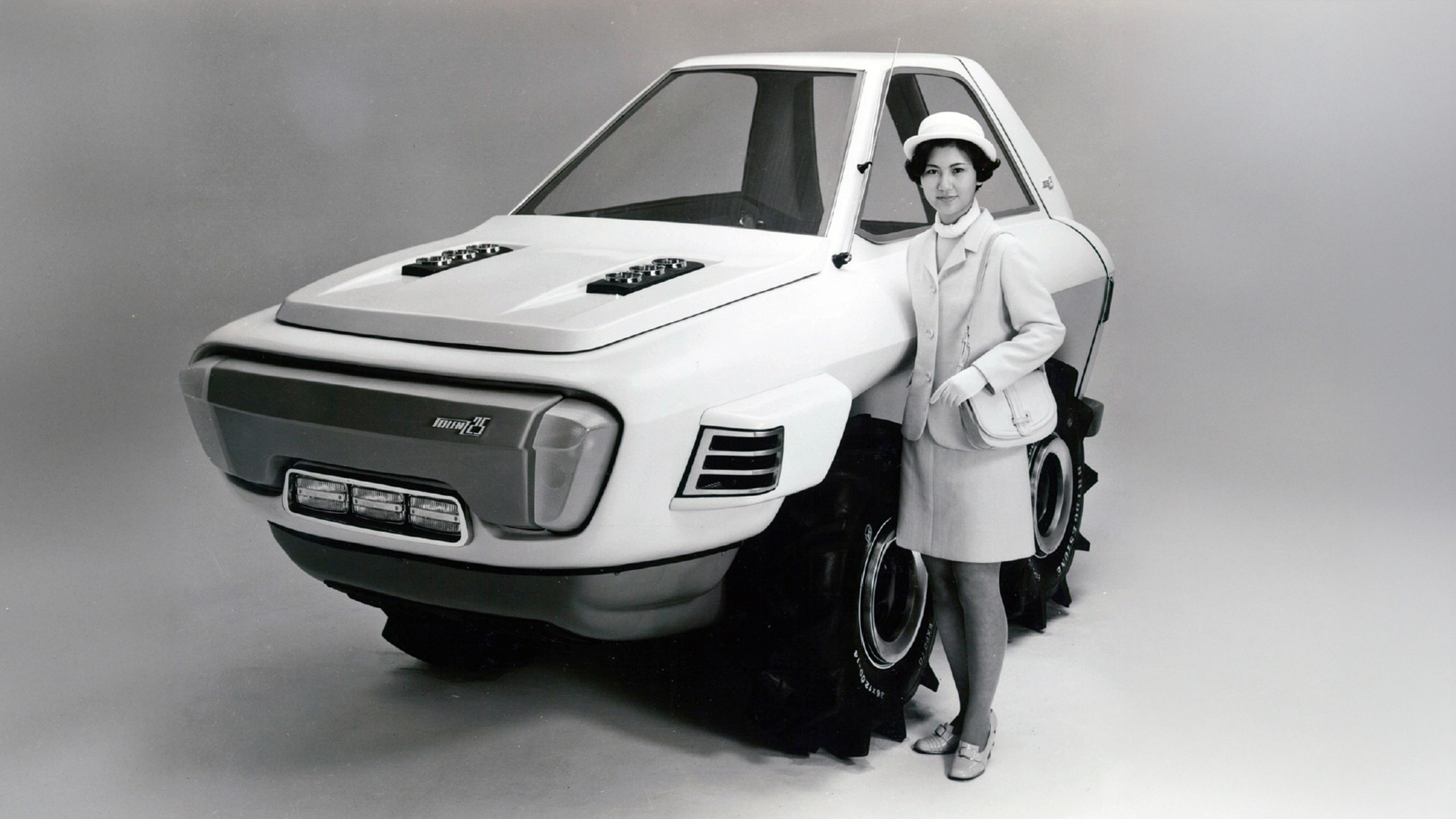
Expo 2025 Osaka, Kansai (Expo 2025) opened on April 13th. Once again being held in Osaka half a century after Japan World Exposition Osaka 1970 (Expo '70), this Expo is a grand event with 158 countries and regions participating on the “Designing Future Society for Our Lives” theme.
International Expositions (Expos) in all eras have been events that show futures in which society has overcome challenges it has faced. As those who participated have realized the futures envisioned at those Expos, it is as though they relayed a baton connecting society to the next generation.
What kinds of futures have been shown at past Expos, and how have they been realized? As we look back on the history of Expos and the Kubota Pavilion exhibit at Expo '70, which envisioned a future in which nature and society were in harmony, we will also interview four attendants serving as guides at the Kubota Pavilion about the significance of the Expo they experienced as participants, and their thoughts on Expo 2025.
Expos Are Mirrors Reflecting the Future of Society
Throughout their long history Expos have continually been mirrors reflecting the cutting edge of the times. For example, various countries exhibited steam locomotives at the First London International Exposition of 1851, the first Expo, held in England, the country where the Industrial Revolution began. Steam locomotives were also used as a means of transportation for visitors from home and abroad, and showed the world the convenience of railways as a new transportation network.

Expos also served as platforms for presenting technologies and ideas that symbolized the changes of the times. Inventions that would have a major impact on the development of society including Graham Bell's telephone and Remington's typewriter were exhibited at the Philadelphia International Exposition of 1876 held in the United States.
In addition, Expos have been catalysts accelerating urban development. For example, the Eiffel Tower was built for the Fourth Paris International Exposition of 1889. The Eiffel Tower, which featured the most advanced technology of the time, including hydraulic elevators, telephones, and telegraph stations, and was later used as a radio and TV tower, became a monument symbolizing the development of Paris.

Expo '70, held for the first time in Japan, also left a significant mark on the development of Japanese society. This Expo marked the beginning of the practical application of wireless telephones (cell phones), electric cars and bicycles, radio-controlled clocks, among other technologies that make our lives more convenient and affluent. A linear motor car display model represented the high-speed transportation of the future, and it is now being developed for practical use.


Expos are also places where much knowledge and wisdom from around the globe assembles to address various social issues. Each time an Expo is held, new technologies and products have been created, making our lives more convenient.
| Elevators | New York International Exposition of 1853 |
|---|---|
| Telephones | Philadelphia International Exposition of 1876 |
| Family restaurants, Electric cars, Cordless phones, Moving walkways | Expo '70 |
| IC chip embedded admission tickets, AED, Dry mist | Expo 2005 Aichi |
What Was the Future of the “Bountiful Harvest” That Kubota Presented at Expo '70?
In this way, Expos have in all eras demonstrated innovative technologies and ideas, which have been relayed like a baton on to the next generation. So, what kind of future did Kubota envision and what kinds of technologies did it exhibit at Expo '70?
At the time, Japan was experiencing a period of rapid economic growth and significant development, and pollution was becoming a major social issue. To strengthen pollution regulations, the government enacted the Basic Law for Environmental Pollution Control in 1967 and established the Ministry of the Environment. It was against this backdrop that in 1969 Kubota launched its “Create an environment affluent to human beings” slogan and expanded its business related to improving the social environment. Kubota independently developed wastewater treatment systems and equipment for the treatment of night soil and sewage, and aimed to enter the municipal waste incineration business in earnest.

Expo 2025: What thoughts do these four individuals who worked as attendants at the Kubota Pavilion at Expo '70 have about this year's event?

Ms. Tomiko Nakamoto hopefully said, "I want Expo 2025 to be a place that amazes children and stimulates their curiosity."
"Children at the time of Expo '70 knew nothing about the world, so they were amazed by everything they saw. I think that this amazement stimulated the children's desires to learn and became an incentive to broaden their global perspectives," said Ms. Nakamoto.
Today, with fewer people are traveling abroad than ever before, Expo 2025 is “a good opportunity for children to learn that ‘the world is a big place and that there are many different kinds of people’” stresses Ms. Emiko Inoue. “When visiting overseas pavilions, just the fact that people there had different skin colors surprised children. That astonishment alone is valuable," she said. Expos are perfect occasions for children to broaden their horizons through interactions with foreign countries and learn about the world.
Ms. Misa Toyama also said she would love for children to experience Expo 2025.
“Because so many things from all over the world can be seen in one location I would love for impressionable children, to visit Expo 2025. For that reason, I hope that children will be able to experience this event on equal terms. I look forward to learning how children feel when they see it," said Ms. Toyama.
In order for links between countries to pass from generation to generation, Ms. Yoko Shima emphasizes that it is important to have opportunities for interactions with people from other countries at Expos.
"What I sensed at Expo '70 was that with a little English, a smile, and gestures, one can communicate sufficiently well with people from other countries. I hope that Expo 2025 will also provide a place where people can casually interact with those from other countries. Even as generations change, it is important for people to communicate with each other in order for links between countries to pass from one generation to the next. I think that is what it means to connect to the future means," said Ms. Shima.
Presenting the concept of “The Future of Planetary-conscious Food and Agriculture” at the “Future Life Expo: Future City” pavilion at Expo 2025, Kubota will demonstrate model agriculture styles that provide abundant food and enrich people's lives while protecting the global environment. Receiving the thoughts of the Expo '70 attendants as a baton, we aim to create a place where children, can imagine the future of “food and agriculture” and where the “germination” of new insights and ideas can take place.

Under the belief that the future envisioned at Expo 2025 will surely be realized at some point in time, just as it was with the future presented at Expo '70, Kubota will relay the baton on to link up with the next generation.

